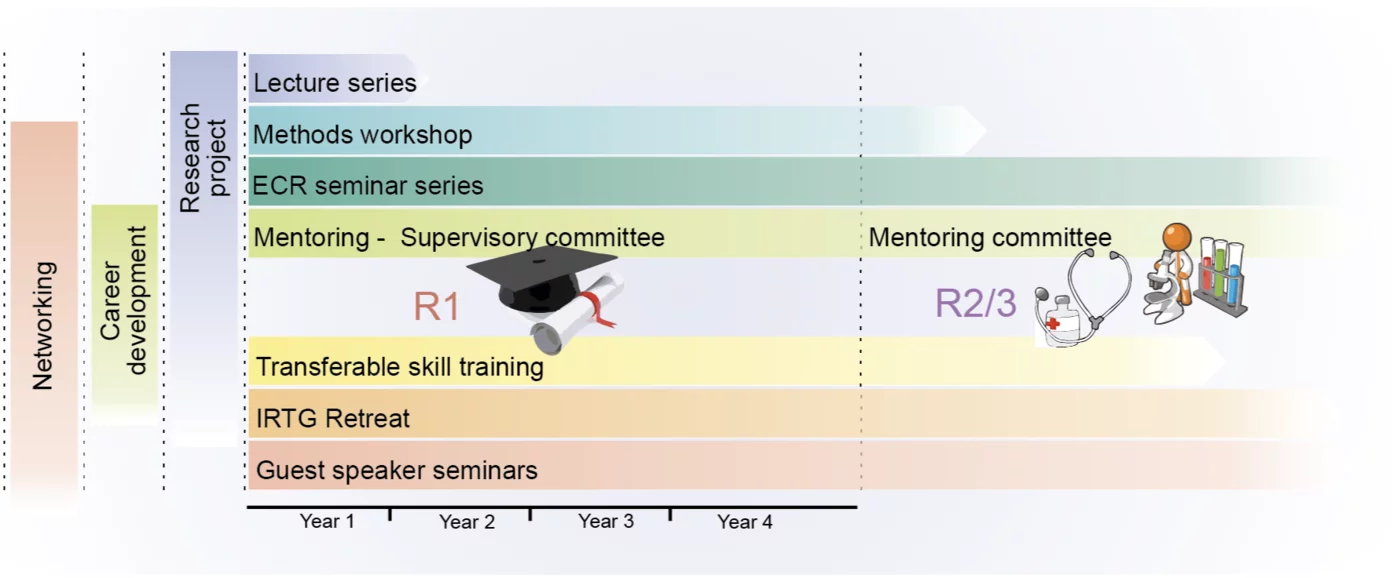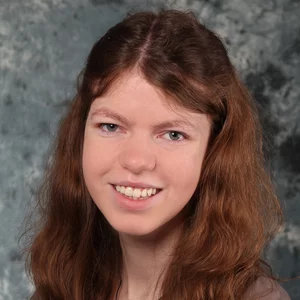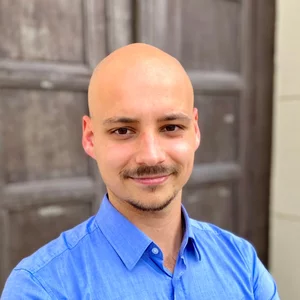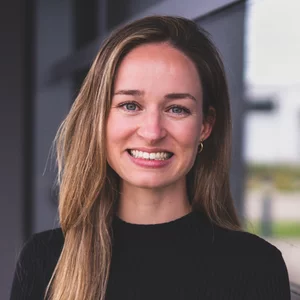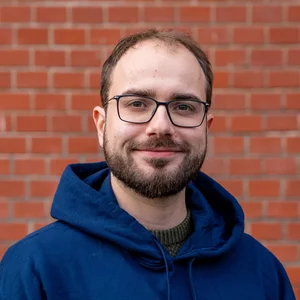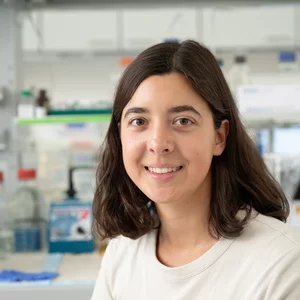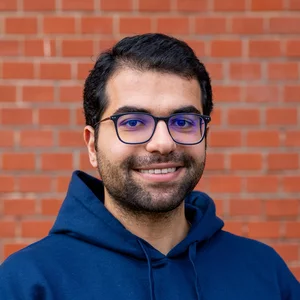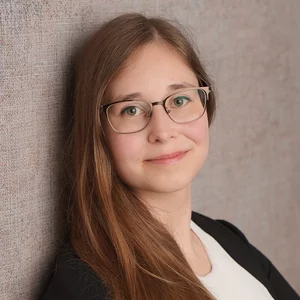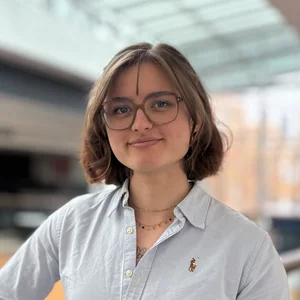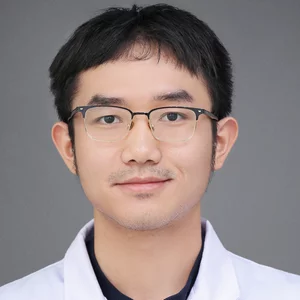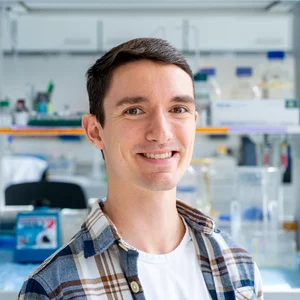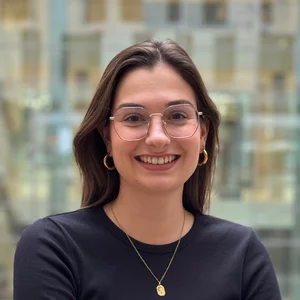Integrated Research Training Group (IRTG) – TRR 417
Project Leaders
A Structured Program for Doctoral Excellence
The Integrated Research Training Group (IRTG) of TRR 417 offers a comprehensive and harmonized education program for all doctoral researchers within the consortium.
Our mission:
- Subject-specific structured education of future experts on colorectal cancer
- Foster strong academic and professional networks between inspiring medical & clinician scientists towards translational science
- Equip researchers for diverse careers in academia, clinical practice, and industry
We combine online formats and on-site exchange programs to promote collaboration, particularly in methods training.
Why This Matters
Colorectal cancer (CRC) remains a major global health challenge, with high prevalence and mortality rates. Tackling it requires a new generation of experts:
- Clinical and natural scientists with deep expertise in mucosal immunology, colon tumorigenesis, and the tumor microenvironment
- Researchers trained to think independently, work collaboratively, and address problems from multiple perspectives
The IRTG prepares doctoral candidates for this task through research-driven learning combined with interdisciplinary skill development.
Core Program Components
The IRTG curriculum provides:
- A structured framework guiding thesis work
- Complementary training elements for specialized skills
- Opportunities to develop transferable skills for careers inside and outside academia
- Support for building national and international scientific networks in CRC research
Training Portfolio
Core Activities:
- TRR 417 Lecture Series
- Early Career Researcher Seminar Series
- Guest Speaker Program
- Annual IRTG Retreat with transferable skills courses
Individualized Development:
- Each doctoral researcher designs a tailored research and training plan with their Thesis Advisory Committee (TAC) formalized in a jointly signed supervision agreement
- Lab exchanges based on the specific needs
Additional Opportunities:
- Access to graduate centers at each partner site:
- GRADE (Frankfurt)
- IGA (Freiburg)
- FAU Graduate Centre (Erlangen)
Quality & Language
- Program language: English
- Continuous improvement: All activities are evaluated through anonymous feedback and lecturer input, ensuring the program remains dynamic and responsive.
Doctoral Researchers
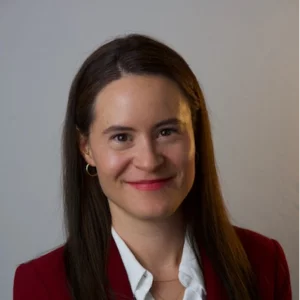
Astrid Huth
Doctoral Researcher
Doctoral Researchers Co-Representative
FAU Erlangen-Nürnberg

Christian Kühne
Doctoral Researcher
Doctoral Researchers Co-Representative
Georg-Speyer-Haus

Nele Schauer
Doctoral Researcher
Doctoral Researchers Representative
University of Freiburg
Doctoral Researchers Representatives

Nele Schauer
Doctoral Researcher
Doctoral Researchers Representative
University of Freiburg

Christian Kühne
Doctoral Researcher
Doctoral Researchers Co-Representative
Georg-Speyer-Haus
Available Jobs
Doctoral Researcher Positions in Colorectal Cancer Research
We are seeking Doctoral Candidates (m/f/d) to join the TRR 417 at all three sites, pursuing functional cancer research on different aspects of cellular communication in the tumor microenvironment of colorectal cancer.



